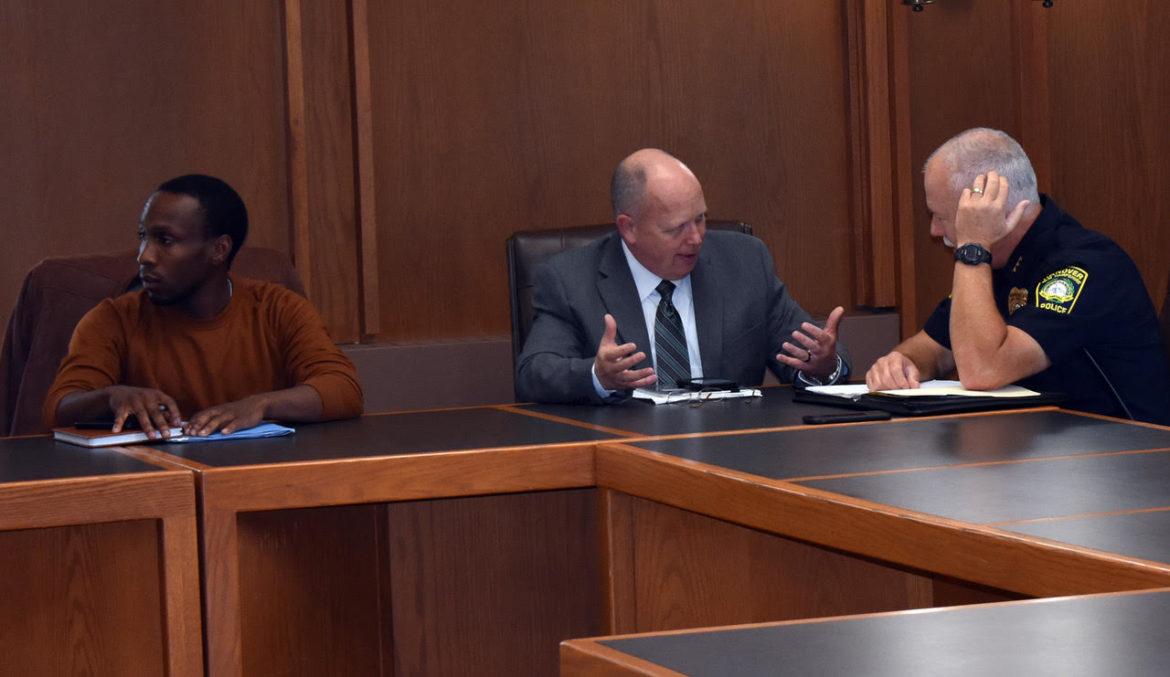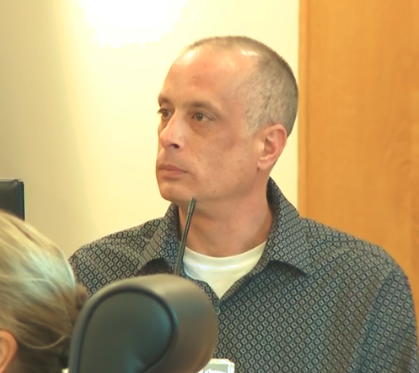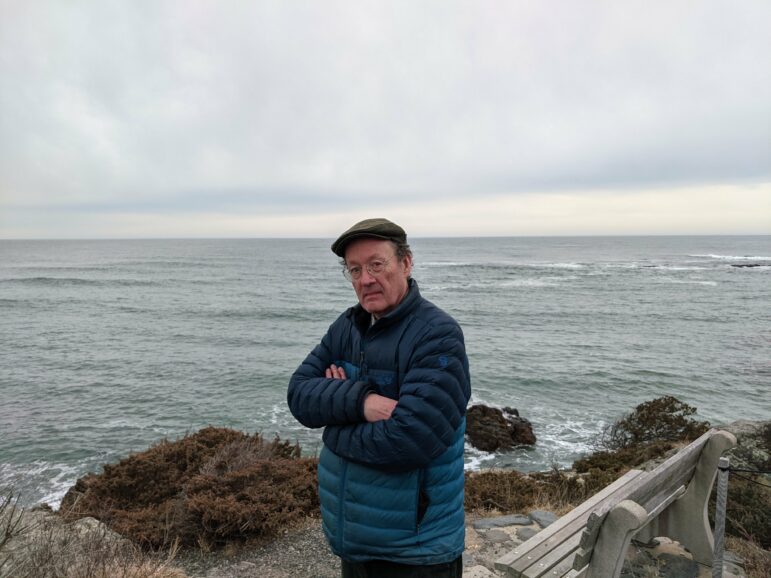By Thomas P. Caldwell, InDepthNH.org
CONCORD — An increase in the number of non-law enforcement members on the Police Standards and Training Council and the ability of a review committee to question investigative reports on officer misconduct are two proposals coming out of an Oct. 27 meeting in the Legislative Office Building.
After weeks of discussion, the commission charged with developing recommendations on the handling of police misconduct complaints is approaching a consensus. The draft proposal discussed Wednesday addressed some of the objections raised earlier about the strong slant toward law enforcement personnel in earlier versions of the report.
The commission is charged with making legislative recommendations to address the two outstanding goals established by Gov. Chris Sununu’s Law Enforcement Commission on Accountability, Community, and Transparency, known by the acronym LEACT. Those goals were to clearly define what constitutes officer misconduct, and to establish an independent state entity to handle complaints of officer misconduct.
The report is due Nov. 1 in order to give the state legislature time to draft a bill for the next session. Even with Wednesday’s progress on the draft recommendation, the commission is still coming up against the clock, with Attorney General John Formella saying they may have to meet on Nov. 1 if they cannot wrap up the report on Thursday. However, he was hopeful they could finish their work this week.
Under the new draft, which Formella and Senior Assistant Attorney General Matthew Broadhead reworked based on comments made last week, the Police Standards and Training Council would be expanded to include 10 members of law enforcement, two judges, the attorney general or designee, and four members of the public.
The increase is necessary, according to the American Civil Liberties Association-NH, because the Council is the one holding the power under the proposal. Rather than establishing an independent agency to handle complaints about police officers, the commission has placed the complaint review committee within Police Standards and Training and limited its role to making a recommendation to the Police Standards and Training Council. The Council will determine whether the complaint is valid and what discipline may be needed.
The director of the agency, John Scippa, said it makes sense to have the review committee part of his organization which already reviews officer misconduct as part of its statutory authority over the training, certification, and discipline of officers. It also makes financial sense, he said, by avoiding the cost of establishing a completely separate entity.
Wednesday’s proposal set the anticipated cost of hiring a full-time staff attorney and two full-time investigators to take on the extra work at $350,000.
Under the proposal, the new Law Enforcement Conduct Review Committee would comprise four law enforcement members and three public members — none of whom would be police officers, judges, or lawyers or have a spouse, sibling, or parent who is. The committee also would have a staff attorney to provide guidance, carry out investigations, and “prosecute” cases of misconduct in front of the Council.
The term “prosecute” generated some resistance from the law enforcement members of the commission who objected to an adversarial hearing process. As Scippa pointed out last week, officers are compelled to truthfully testify before the Police Standards and Training Council and don’t have a right to “remain silent,” as civilians charged with a crime can do.
Londonderry Police Lt. Mark Morrison said it is important to distinguish between prosecution and a hearing in which anyone can ask questions.
Joseph Lascaze of ACLU-NH said that is why a prosecutor is necessary: He has heard a police chief speak on behalf of his officer during a disciplinary hearing.
Both Assistant Safety Commissioner Eddie Edwards and Formella said there is little distinction between prosecuting and presenting evidence, but Formella said they could easily substitute language to the effect that the attorney would present the evidence and recommendations on behalf of the review committee. “It does the same thing, but it’s less of a flash point,” Formella said.
Lascaze was adamant about including under the definition of “valid investigation” an exception for an investigative report that “doesn’t add up.”
The draft language carved out other exceptions, stating, “An investigation shall not be valid if (i) the agency has not adopted an effective internal affairs program; (ii) the agency refuses, with any legitimate basis, to conduct an investigation; (iii) the agency intentionally did not report allegations to the council as required; (iv) the agency attempts to cover up the misconduct or takes an action intended to discourage or intimidate a complainant; or (v) the agency’s executive officer is the officer accused of the misconduct.”
Morrison argued that there should be a standard beyond just disagreeing with a report’s findings, and Scippa agreed: “We’ve got make sure it’s not a 50-50 situation,” he said. If a report’s findings are not supported by the evidence, the committee should have a right to do its own investigation, he said, putting it in terms of “How did they land on this when they’ve got all this evidence?”
Sen. Sharon Carson (R-Londonderry) suggested using the criteria of a local department not following its own procedures as a reason to declare the investigation invalid, but Formella pointed out, “They could follow all their procedures and still come to a wrong conclusion.”
In the end, the group agreed with Lascaze’s suggestion of adding to the list of exceptions under “valid investigation” to cover investigative reports carrying questionable conclusions.
The review committee’s duties are to review “valid complaints” — defined as being “in writing made by a person who identifies themselves to the council or any law enforcement agency.” If determined necessary, the committee “shall cause or direct an investigation of the alleged misconduct … confirm that the investigation was valid, review the findings of the investigation and, if necessary, recommend that a public hearing be held by the council on the matter and provide a recommended sanction….”
Lascaze raised the question of anonymous complaints. At an earlier session, the commission had agreed that a “credible complaint,” even if made anonymously, should merit investigation. Julian Jefferson of the Public Defender’s Office, had cited as an example someone calling in with specific information about who the officer was, what he did, and when. “It should be the substance of the complaint that matters,” he said.
Yet that language did not show up on the latest draft.
“In my mind, if an anonymous complaint came in, you could do some work to develop it,” Formella said. “There would have to be some followup.”
T.P. Caldwell is a writer, editor, photographer, and videographer who formed and serves as project manager of the Liberty Independent Media Project. Contact him at liberty18@me.com.





